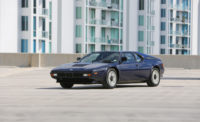
If the Obama administration can engineer it, one million hybrid and electric vehicles will hit American roads by 2015. The president's goal is to accelerate construction of manufacturing plants with federal loans and grants.
In July, the U.S. Dept. of Energy made a $730-million loan commitment to Dearborn, Mich.-based Severstal North America to fund the construction and modernization of finishing facilities that will supply advanced high-strength steel for fuel-efficient vehicles. Severstal estimates the projects will generate 2,500 construction jobs for Detroit-area workers.
As a provision of the Advanced Technology Vehicles Manufacturing Loan Program, DOE has set aside $25 billion to increase production of clean, renewable fuels. The initiative also funded a substantial portion of a $1.7-billion Nissan battery plant currently under construction in Smyrna, Tenn.
To date, DOE has issued more than $9 billion in loans to vehicle manufacturers, including Ford Motor Co., Fisker Automotive, Tesla Motors and Vehicle Production Group, according to a DOE spokesperson who says the loans require the plants be built in the U.S.
Under the American Recovery and Reinvestment Act, DOE has issued grants to construct more than 30 battery and component plants in 19 states, including a $244-million electric-motor plant for GM in Baltimore, the first of its kind built by a U.S. automaker. By 2015, the projects will have the capacity to support 500,000 electric-drive vehicles a year.
In all, DOE is funding the development of eight of the roughly 20 electric-drive vehicles that automakers plan to roll out over the next two years. The programs point to the broader recovery of the auto industry, which has added 75,000 workers since June 2009. Likewise, car sales have jumped to a projected 13 million vehicles in 2011 from 10.4 million in 2009.
“We're seeing a renaissance of sorts,” says Marisa Varga, manager of business development at contractor Barton Malow Co., Southfield, Mich. The firm is concluding work on a $150-million, 320,000-sq-ft modernization program for Severstal. “We're certainly seeing and bidding on more projects,” she says.
Projects that involve renewable fuels are bringing a boost to designers and builders capable of driving aggressive schedules involving shipments or dates specified by loan and grant programs.
St. Louis-based contractor Clayco Inc. won the right to construct a $320-million, 440,000-sq-ft lithium-ion battery plant for Dow Kokam in Midland, Mich., in part because of the contractor's ability to design the project and self-perform concrete work for the tilt-up structure. That project broke ground in June 2010 and is due for completion in early 2012.
“They're fully integrated,” says Mark Slater, the owner's project manager, speaking of the builder. “When you're driving as aggressive a schedule as we are, that's a huge asset. Handoff after handoff can require huge amounts of time.”


Post a comment to this article
Report Abusive Comment